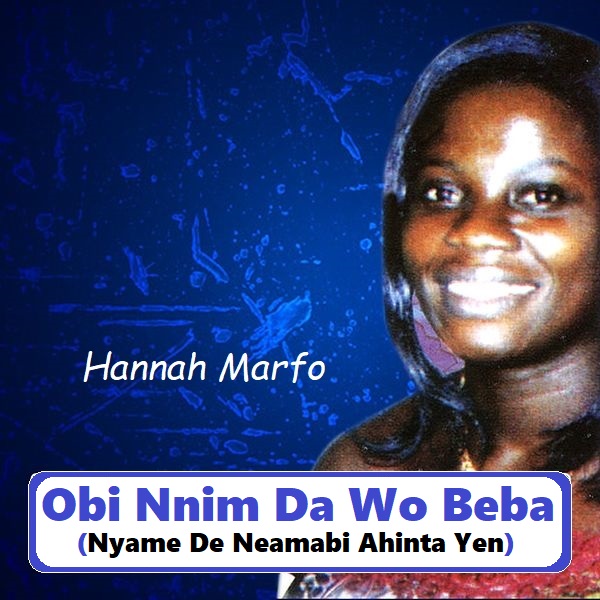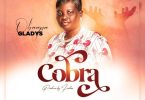

Hannah Marfo – Obi Nnim Da Wo Beba
Hannah Marfo – Obi Nnim Da Wo Beba
Hannah Marfo is a legendary Ghanaian gospel musician known for her powerful vocals and uplifting songs that inspire listeners to have faith and hope in God. Her classic hit, “Obi Nnim Da Wo Beba“, is a timeless masterpiece that continues to resonate with listeners decades after its release.
The title of the song, “Obi Nnim Da Wo Beba”, means “no one knows tomorrow” in the Twi language. The song’s lyrics are a reflection on the uncertainty of life and the need to trust in God for guidance and protection. The song’s themes are particularly relevant in today’s world, where the COVID-19 pandemic has reminded us of the fragility and unpredictability of life.
The song’s instrumentation is a fusion of traditional Ghanaian highlife and gospel music, with a lively beat and a joyous vibe. The instrumentation creates a celebratory and uplifting atmosphere that complements the song’s themes of faith and hope.
Hannah Marfo’s vocals are powerful and emotive, and she delivers the lyrics with conviction and passion. The chorus of the song is particularly moving, with its haunting melody and poignant lyrics. The chorus goes thus: “Obi nnim da wo beba, na wo nyame na ayeyi aye, obi nnim da wo beba, na wo nyame na onyame ne wo.”
You Might Also Like: Hannah Marfo – David Nyame
The music video for “Obi Nnim Da Wo Beba” is also visually stunning, with beautiful cinematography that showcases Ghana’s natural beauty. The video features Hannah Marfo singing and dancing with a group of women, adding to the celebratory and uplifting themes of the song.
Despite the song’s themes of faith and hope, Hannah Marfo also uses the song as a platform to speak out against social injustice and inequality. In one of the verses, she sings, “Obroni tumi ne ho nka, wose adiyifo se wobegye nti, sika kasa y3m, nanso 3man nso y3m,” highlighting the importance of using one’s talents and resources to help others.
In conclusion, “Obi Nnim Da Wo Beba” is a timeless masterpiece that celebrates faith, hope, and the beauty of life. Hannah Marfo’s vocals and songwriting skills are on full display in this song, and she has left an indelible mark on Ghanaian gospel music. The song’s themes of social justice and equality also serve as a reminder of the importance of using music as a tool for positive change.
[fbcomments]








